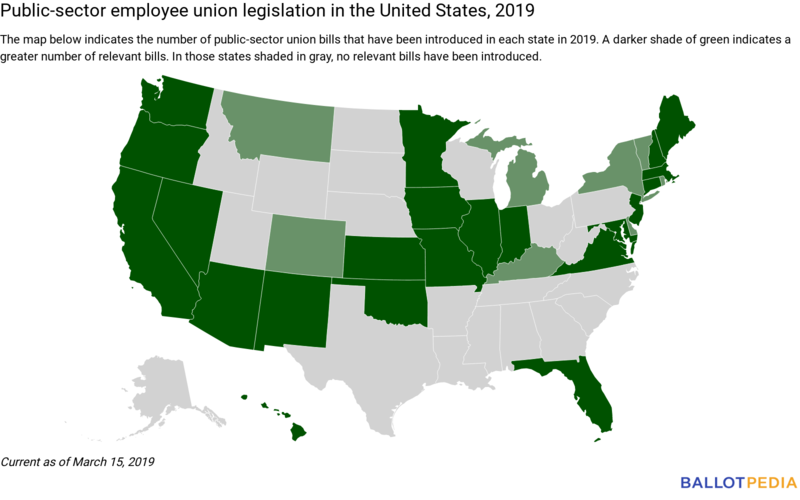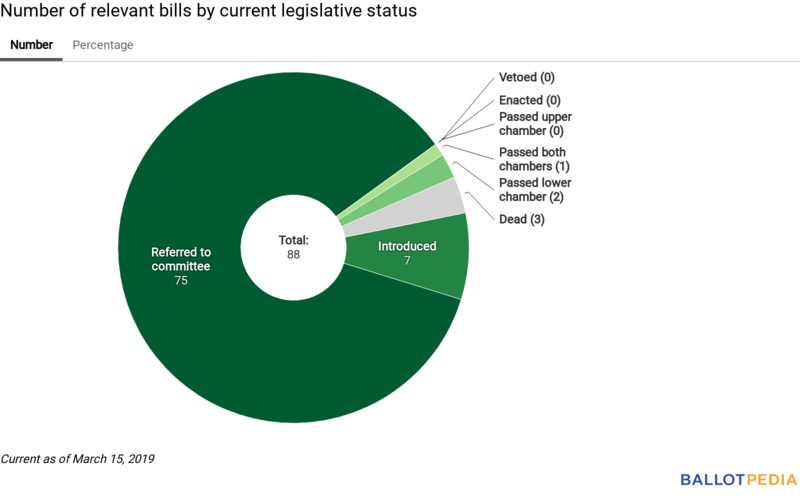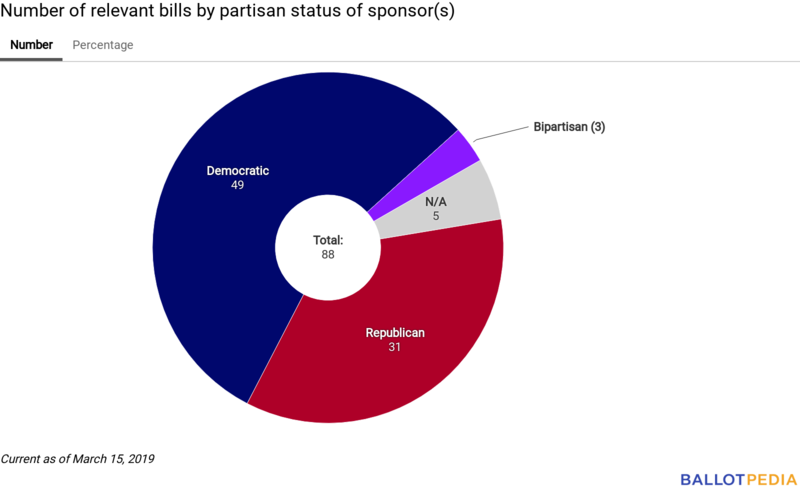Union Station: March 15, 2019
Welcome to Union Station, our weekly newsletter that keeps you abreast of the legislation, national trends, and public debate surrounding public-sector union policy. This week, we take a closer look at Oregon, where lawmakers are considering several bills related to public-sector union policy.
Oregon lawmakers consider bills amid reported declines in public-sector union membership
- Membership update: According to reports filed with the U.S. Department of Labor, SEIU 503, one of Oregon's largest unions representing public-sector workers, saw membership declines from 2017 to 2018. In 2017, SEIU 503 claimed 58,384 total members, including 7,093 agency fee or fair share payers. In 2018, the union claimed 45,741 members, including 635 agency fee or fair share payers. This represents a 21.7 percent decline in total membership and a 91 percent decline in agency fee or fair share payers.
- These numbers are disputed. Melissa Unger, SEIU political director, told Willamette Week that membership has increased by 2.2 percent. Meanwhile, the Freedom Foundation, citing data obtained from the Oregon Department of Administrative Services, claims that membership has declined 26 percent.
- Janus v. AFSCME: Last summer, the Supreme Court of the United States held that public-sector unions cannot require non-member employees to pay agency or fair share fees covering the costs of non-political union activities. This ruling overturned the precedent established by the high court in Abood v. Detroit Board of Education in 1977.
- Legislation update: We're currently tracking 10 Oregon bills related to public-sector union policy. All of these bills are currently in committee. Oregon is a Democratic trifecta -- Democrats control the governorship and both chambers of the state legislature.
- Democratic-sponsored legislation:
- HB2016: This bill would require public employers to grant paid time to employees participating in certain union activities. It would also require employers to furnish unions with access to employees.
- HB2567: This bill would require the state Employment Relations Board to conduct a study "relating to public employers subject to public employee collective bargaining act" and submit that study to the legislature by Sept. 15, 2021.
- HB2643: This bill would prohibit employers from requiring employees to pay dues or agency fees to unions if they choose not to become members. It would also establish the Employment Relations Protection Account and require public employers to pay assessments to this account. These assessments would then be distributed to unions.
- HB2726: This bill would allow non-members to make voluntary contributions to labor unions via payroll deduction.
- Republican-sponsored legislation:
- HB2775: This bill would permit public-sector employees to refrain from joining or paying dues to unions. This bill would also allow unions to choose not to represent non-members.
- HB3072: This bill would allow employees to revoke authorizations for dues or fees deductions paid to unions.
- HB3244: This bill would prohibit employers from requiring employees to become or remain union members as a condition of employment. It would also prohibit employers from requiring employees to pay fees to unions in lieu of dues as a condition of employment.
- SB846: This bill would allow public employees to refrain from joining or paying dues to a union. It would also permit unions to refrain from representing employees who choose not to join or pay dues to the union.
- Other legislation (i.e., bills sponsored by bipartisan groups of lawmakers or committees as units):
- HB2276: This bill would prohibit public employers and labor unions from entering into agreements authorizing the deduction of in-lieu-of-dues payments from public employee paychecks.
- HB3009: This bill would require public employers to provide unions with access to new employees. It would also permit individuals who are not union members to make payments in lieu of dues to unions.
- Democratic-sponsored legislation:
The big picture
Number of relevant bills by state
We are currently tracking 88 pieces of legislation dealing with public-sector employee union policy. On the map below, a darker shade of green indicates a greater number of relevant bills. Click here for a complete list of all the bills we're tracking.
Number of relevant bills by current legislative status
Number of relevant bills by partisan status of sponsor(s)
Recent legislative actions
Below is a complete list of legislative actions on relevant bills since the beginning of the year. Bills are listed in alphabetical order, first by state and then by bill number.
- Maine LD1232: This bill would prohibit employers from requiring employees to join a union or pay fees to a union as a condition of employment.
- Introduced March 14.
- Montana HB323: This bill would prohibit employers from requiring employees to become or remain union members as a condition of employment. It would also disallow payroll deductions for non-member fees paid to unions.
- Senate Business, Labor, and Economic Affairs Committee hearing March 13.
- New Mexico HB85: This bill would authorize employers and labor unions to enter into agreements requiring employees to become union members as a condition of employment.
- Senate passed March 10. House passed Feb. 22.
- Oregon HB3244: This bill would prohibit employers from requiring employees to become or remain union members as a condition of employment. It would also prohibit employers from requiring employees to pay fees to unions in lieu of dues as a condition of employment.
- Referred to Business and Labor Committee March 11.
- Vermont S0152: This bill would require employers to provide unions with employee contact information. It would also permit unions to meet with new employees. It would also provide for automatic deduction of dues from paychecks.
- Introduced and referred to Economic Development, Housing, and General Affairs Committee March 12.
- Washington HB1575: This bill would declare public employers and public-sector unions are not liable for claims involving agency fees paid to unions before Janus.
- Referred to Senate Labor and Commerce Committee March 13. House passed March 11.
See also
| |||||||||||||||||||||||





